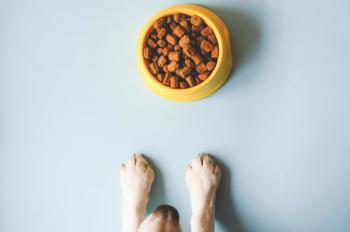
USDA awards $805,000 grant for ID systems
MANHATTAN, KAN.-An $805,000 federal grant is fueling research to develop a national animal identification system.
MANHATTAN, KAN.—An $805,000 federal grant is fueling research to develop a national animal identification system.
The grant, awarded by the United States Department of Agriculture (USDA), goes to Kansas State University (KSU) and the Kansas Animal Health Department, where researchers are working together to develop the identification plan's premise identification network.
More specifically, the researchers are working to evaluate the use of field-based, mobile technologies that employ global positioning satellites to mark animal loading and unloading sites. The system is designed to link state health authorities' databases in the central United States with electronic individual cattle identification, premise identification and the location of the animals, university officials say.
Once completed, the system will use electronic radio frequency identification technology placed on animals to track them from the farm through the marketing processes and to slaughter. Tracing back an animal's route in the event of a national emergency should take no longer than 48 hours, officials add plans to develop a national animal identification system.
The grant, awarded by the United States Department of Agriculture, is part of $11.64 million awarded in a competitive program to states and tribes for a national identification plan's premise identification network.
KSU receives $1.3 million for security program
Manhattan, Kan.—
The U.S. Department of Defense has awarded Kansas State University's (KSU) National Agricultural Biosecurity Center with a $1.38 million two-year contract to aid emergency personnel in effectively responding to agricultural or zoonotic bioterrorist events.
The project, dubbed "Situational competency, simulations and lessons learned for food/agricultural bioterrorism," involves developing educational software and content. KSU has subcontracted partners for the assignment, including University's Alabama-Birmingham's Center for Emergency Care and Disaster Preparedness; software developer Cell Exchange, Inc.; and Analytic Services Inc., a Virginia-based public service research institute that provides information systems delivery, university officials say.
While Analytic Services compiles an agrosecurity lessons learned database, Cell Exchange will create dashboard technology based on its "Protect America" real-time content aggregation system. The University of Alabama is charged with creating a series of rotating images to increase awareness of agricultural biopreparedness.
The elements will come together in a KSU National Agriculture Biosecurity Center portal, officials say.
Newsletter
From exam room tips to practice management insights, get trusted veterinary news delivered straight to your inbox—subscribe to dvm360.





